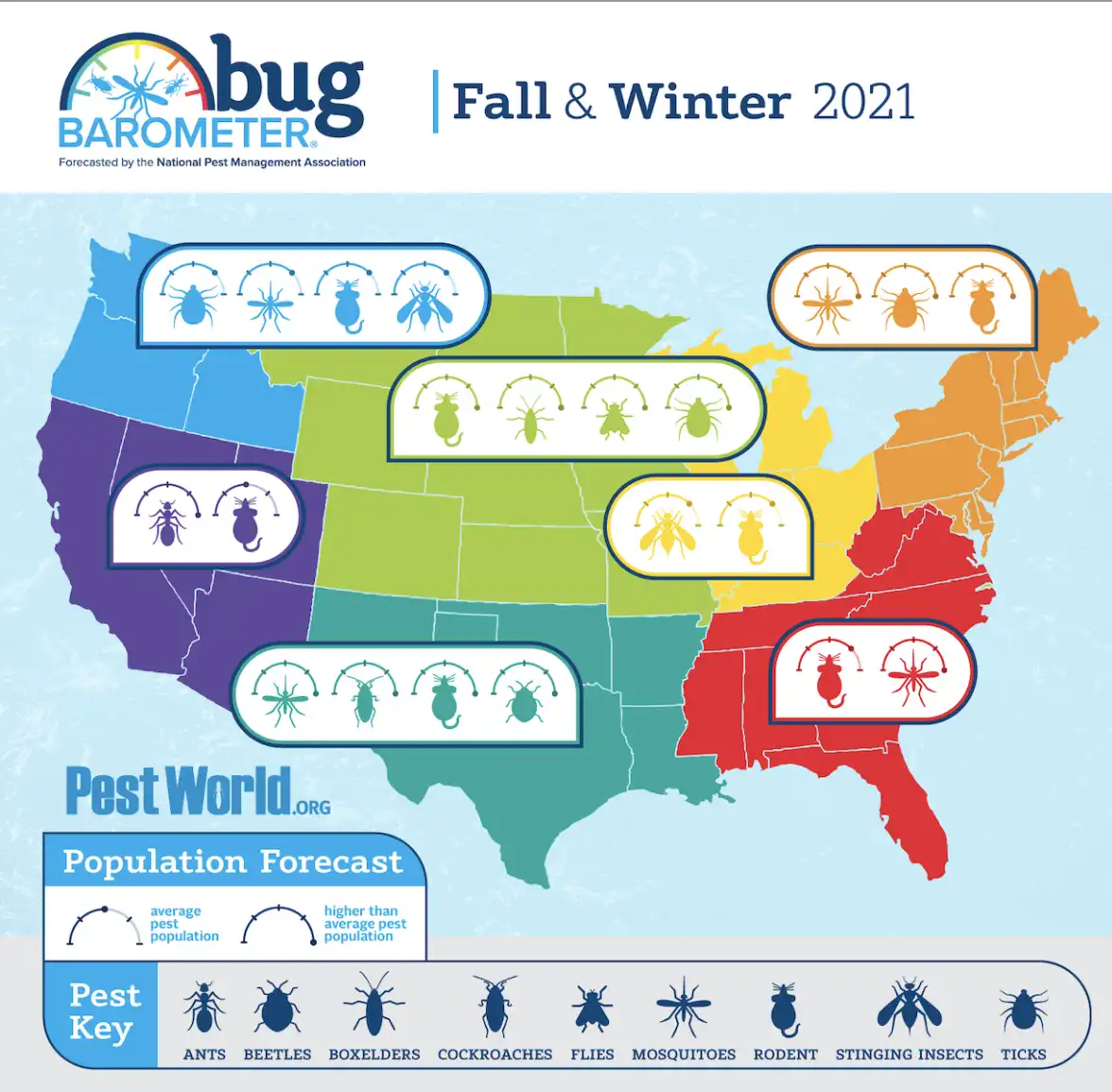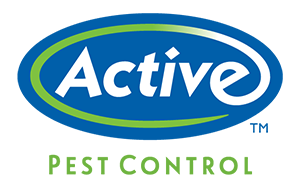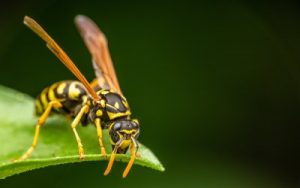
Are you planning to spend some time outside this summer? You won’t be alone: wasps and bees are active in the summer in Georgia. A run-in with wasps or bees can result in annoyance, stings and even serious allergic reactions. But how can you keep stinging insects at bay without loading up on bug spray? To learn how to repel bees and wasps while you’re outdoors this summer – naturally – read on!
Plants That Bees and Wasps Love
Since bees and wasps are pollinators, it’s not shocking that they’re attracted to plants. Here are some flowers that bees and/or wasps are especially attracted to:
- Black-eyed Susan
- Honeysuckle
- Lantana
- Lilacs
- Perennial Yarrow
- Poppies
- Pale Purple Coneflower
- Sweet Fennel
- Wisteria
- Queen Anne’s Lace
- Sedum
- Snapdragon
- Sunflowers
Are any of these growing near your home? If so, consider moving them further away, if possible. Especially if they’re close to a patio or other outdoor space that you use frequently.
Plants That Bees and Wasps Hate
Wasps and bees are attracted to some plants based on how they smell but repelled by other plants for the same reason. The plants that repel them include:
- Basil
- Citronella
- Eucalyptus
- Geraniums
- Marigolds
- Peppermint
- Spearmint
- Thyme
- Wormwood
To keep stinging insects away from your porch, deck or patio, consider adding some of these plants near your home’s outdoor spaces.
Bees and Wasps and Food
Stinging insects, especially wasps, are also attracted to food. This can be a problem because whether it’s barbecues, picnics or kids with ice cream, eating food outside is a part of summer.
However, there are steps you can take to reduce the chance that bees or wasps will ruin an outdoor meal.
- Put away food and drinks promptly after eating a meal outside.
- Keep sugary drinks closed or covered to keep wasps out.
- When you put food or food-related trash in a trash can, close the lid securely.
Bees and wasps are attracted to food. However, like with plants, there are some food items that bees and wasps don’t like, including:
- Bay Leaves
- Cinnamon
- Cloves
- Cayenne Pepper
- Garlic
- Sliced Cucumber
- Vinegar
If you keep one or more of these in close proximity while you’re enjoying the outdoors, it could help keep stinging insects away. For example, you could place cinnamon sticks or a glass of vinegar on a patio table. Or bring some sliced cucumber on a plate if you’re eating a meal outside.
How to Keep Bees and Wasps Away with Essential Oils
Another way to keep stinging insects away naturally is to make an essential oil-based pest repellent spray. Stinging insects dislike the smell of the essential oils below:
- Citronella oil
- Clove oil
- Eucalyptus oil
- Geranium oil
- Peppermint oil
- Rosemary oil
Simply combine essential oil and water at a ratio of two drops of essential oil per ounce of water to make a natural alternative to store bought insect repellent.
Best Bee and Wasp Exterminators in Georgia
Natural pest repellents can help keep some wasps or bees away. However, they won’t be enough to deal with a serious infestation. In that case, you may need to hire a local exterminator to get rid of the stinging insects on your property. Active Pest Control has been providing exterminator services in Georgia since 1985. If you’re looking for eco-friendly bee, wasp and hornet removal, call us today for a free quote!

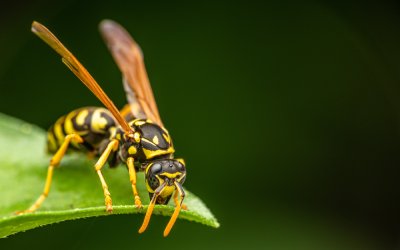
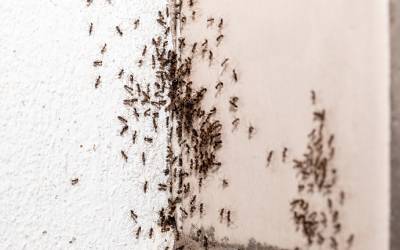
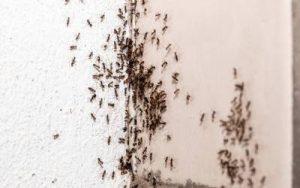
 Spring and summer in Georgia come with a lot to be excited about. However, the warm weather and sunshine following rainfall lead to all kinds of pest problems in our region. It’s important to be able to stop pests from finding food sources, shelter, and breeding grounds in your backyard, because without any effort put into pest prevention, your background will be overrun with pests for most of the year. If you’re wondering how you can pest-proof your backyard, read on for advice from our expert exterminators at Active Pest Control!
Spring and summer in Georgia come with a lot to be excited about. However, the warm weather and sunshine following rainfall lead to all kinds of pest problems in our region. It’s important to be able to stop pests from finding food sources, shelter, and breeding grounds in your backyard, because without any effort put into pest prevention, your background will be overrun with pests for most of the year. If you’re wondering how you can pest-proof your backyard, read on for advice from our expert exterminators at Active Pest Control!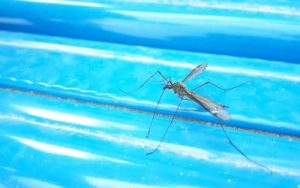 Do you consider yourself a “mosquito magnet?” While it seems that some of us are much more favorable to
Do you consider yourself a “mosquito magnet?” While it seems that some of us are much more favorable to 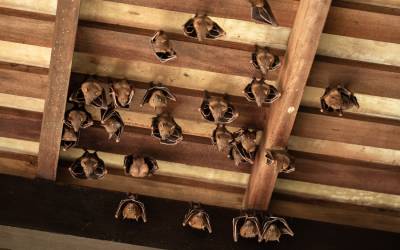 No matter where you are—in the living room with your family or in bed at night—hearing noises and movement in your attic is frightening. While some may believe they are living the plot of a horror movie, the reality is that their home is being infested by nuisance wildlife. An attic is a popular place for wild animals to shelter, as they gain access to our homes through the roof. It goes without saying that no one wants animals taking up residence in their attic.
No matter where you are—in the living room with your family or in bed at night—hearing noises and movement in your attic is frightening. While some may believe they are living the plot of a horror movie, the reality is that their home is being infested by nuisance wildlife. An attic is a popular place for wild animals to shelter, as they gain access to our homes through the roof. It goes without saying that no one wants animals taking up residence in their attic.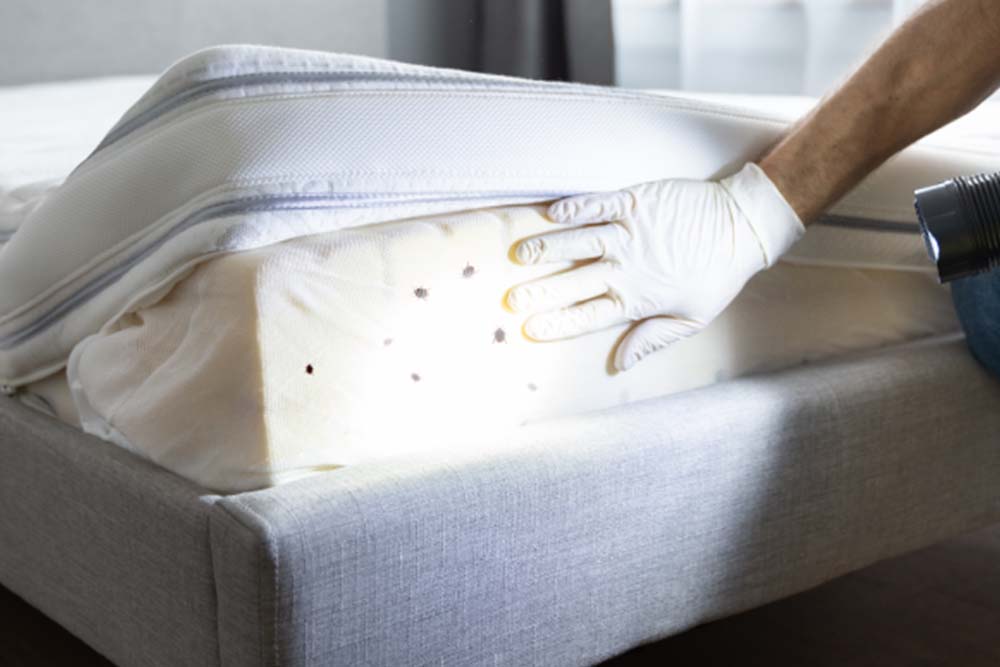
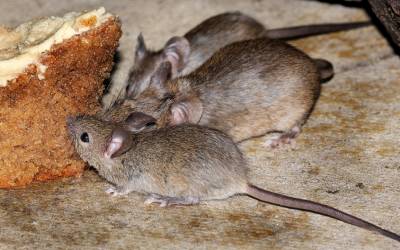 Do you think you have
Do you think you have 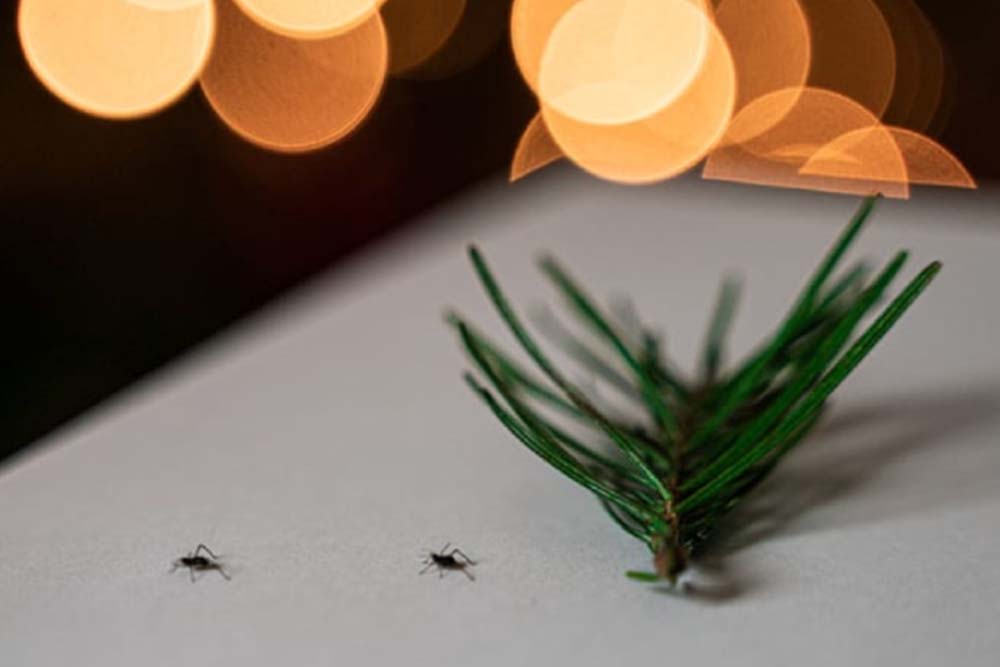 Imagine the following: You are sitting on your couch, enjoying your Hallmark Christmas movie when all of a sudden you are overrun by countless numbers of bugs and other creepy crawlies! While this may sound like a scene straight from a horror movie, it is actually a very real possibility. Live Christmas trees that are brought inside are a thriving ecosystem for certain insects and spiders. In fact, entomologists have reported that a single tree can contain up to 25,000 insects at a time. No one wants to deal with a pest infestation in their homes, especially during the holidays. To learn how to prevent Christmas tree insects in your Atlanta GA home this holiday season, read on for tips with Active Pest Control!
Imagine the following: You are sitting on your couch, enjoying your Hallmark Christmas movie when all of a sudden you are overrun by countless numbers of bugs and other creepy crawlies! While this may sound like a scene straight from a horror movie, it is actually a very real possibility. Live Christmas trees that are brought inside are a thriving ecosystem for certain insects and spiders. In fact, entomologists have reported that a single tree can contain up to 25,000 insects at a time. No one wants to deal with a pest infestation in their homes, especially during the holidays. To learn how to prevent Christmas tree insects in your Atlanta GA home this holiday season, read on for tips with Active Pest Control!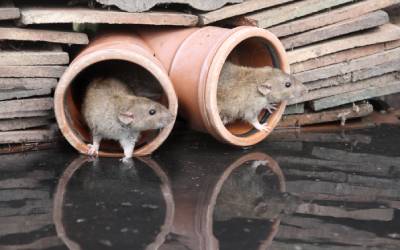 Each season comes with its own kind of pest problems here in Atlanta GA. Differences in temperature, rainfall, plant growth, and even barometric pressure can affect the levels of pest activity and kind of active pests in the area. This means that taking the right steps to ward off pests takes different forms throughout the year, changing with the seasons. As we start to watch the vibrant colors of fall fade into winter, we can’t forget to adapt our routines to prevent newly-arising pest issues. Learn how with Active Pest Control!
Each season comes with its own kind of pest problems here in Atlanta GA. Differences in temperature, rainfall, plant growth, and even barometric pressure can affect the levels of pest activity and kind of active pests in the area. This means that taking the right steps to ward off pests takes different forms throughout the year, changing with the seasons. As we start to watch the vibrant colors of fall fade into winter, we can’t forget to adapt our routines to prevent newly-arising pest issues. Learn how with Active Pest Control!